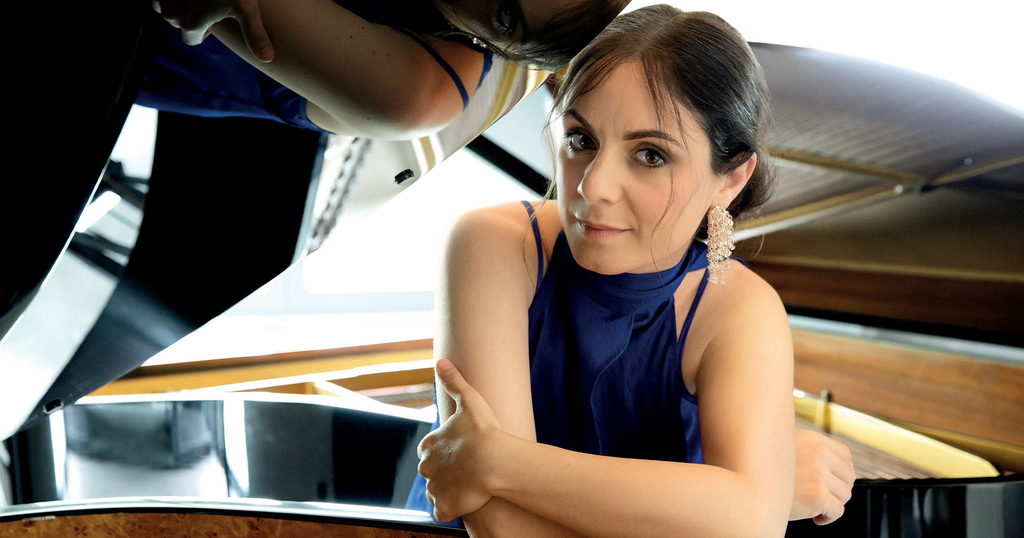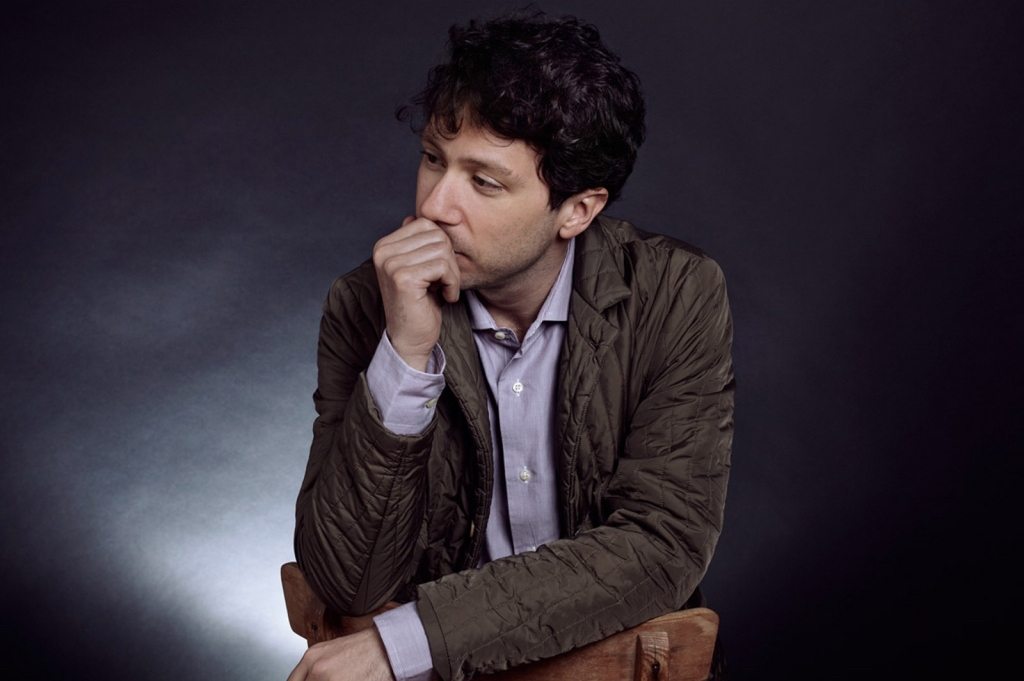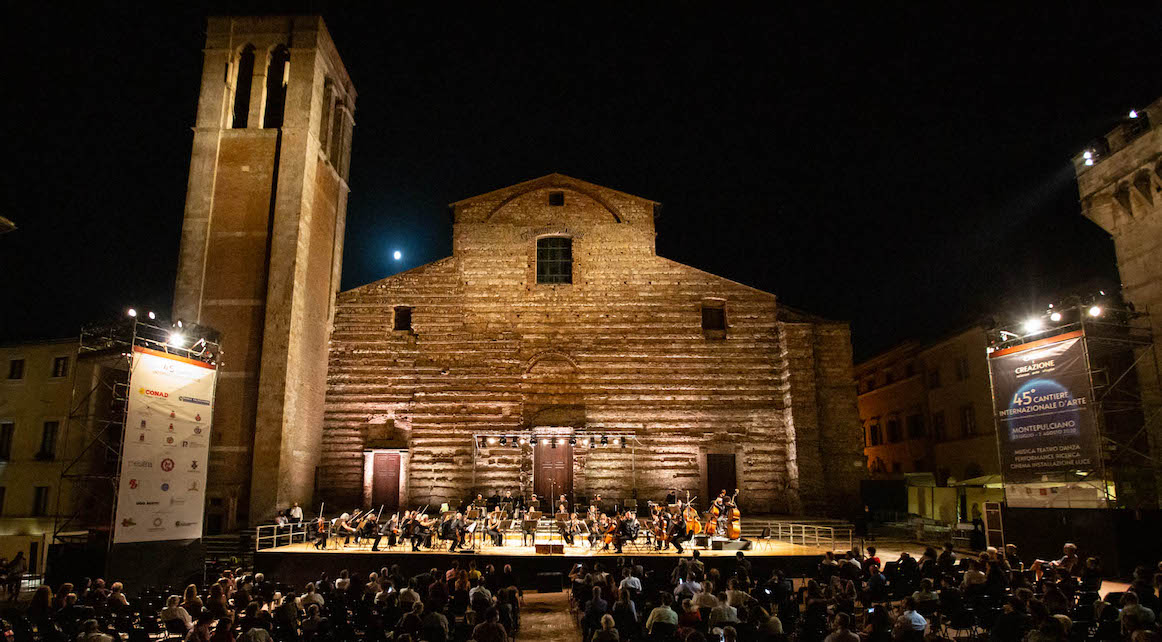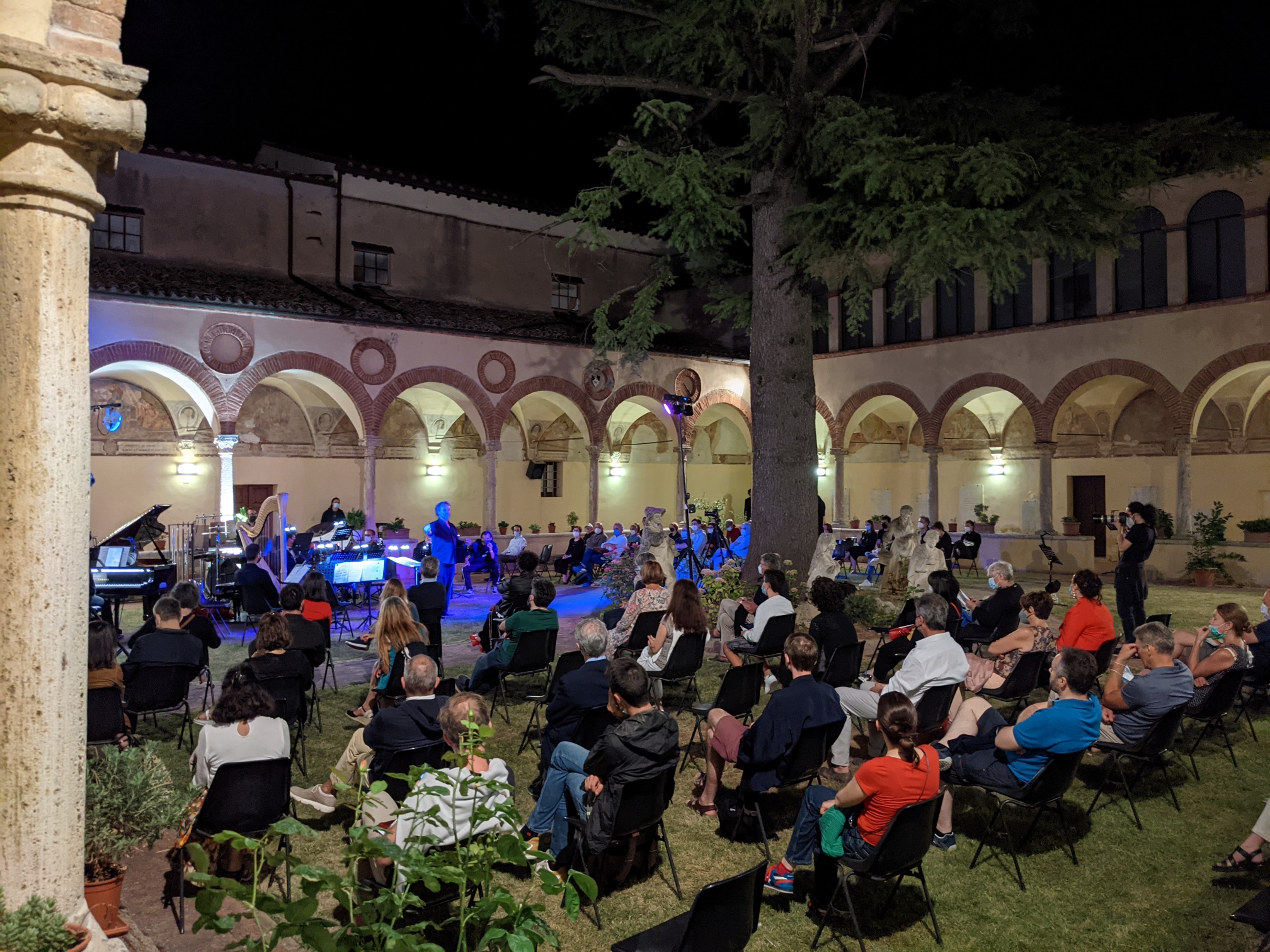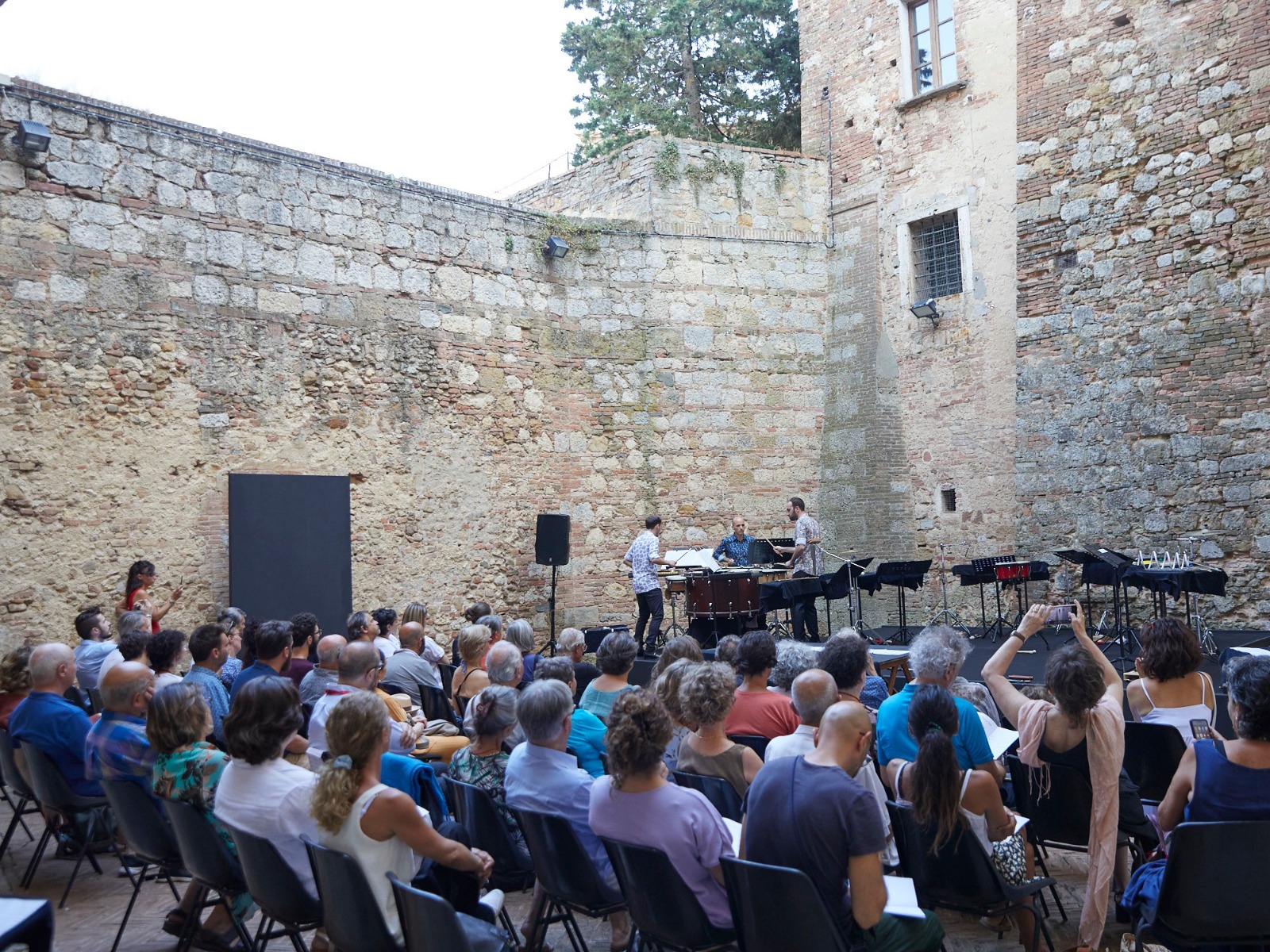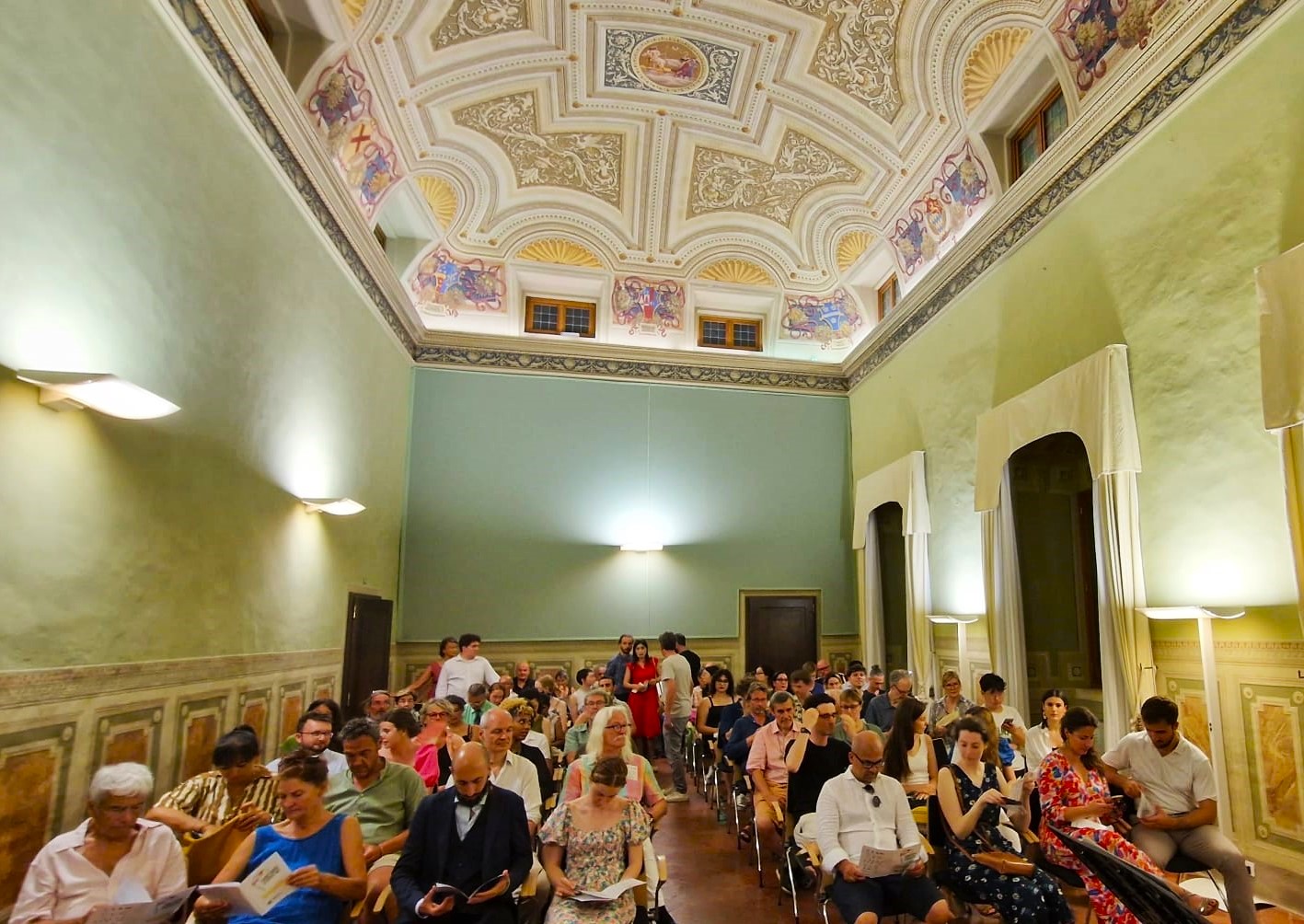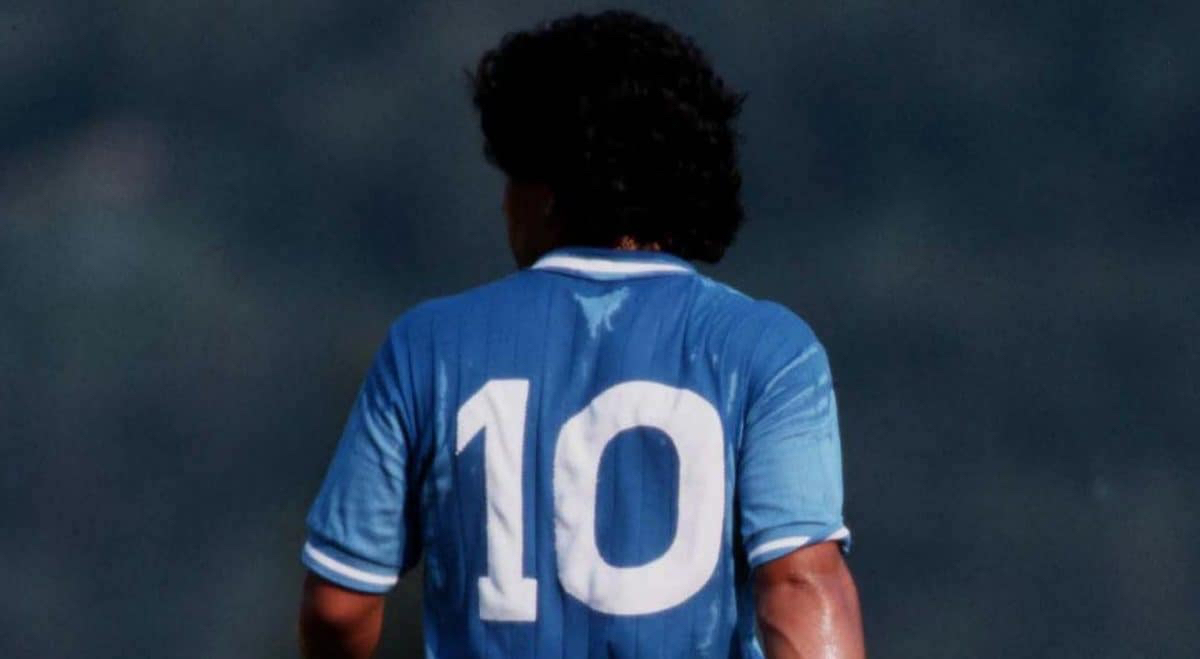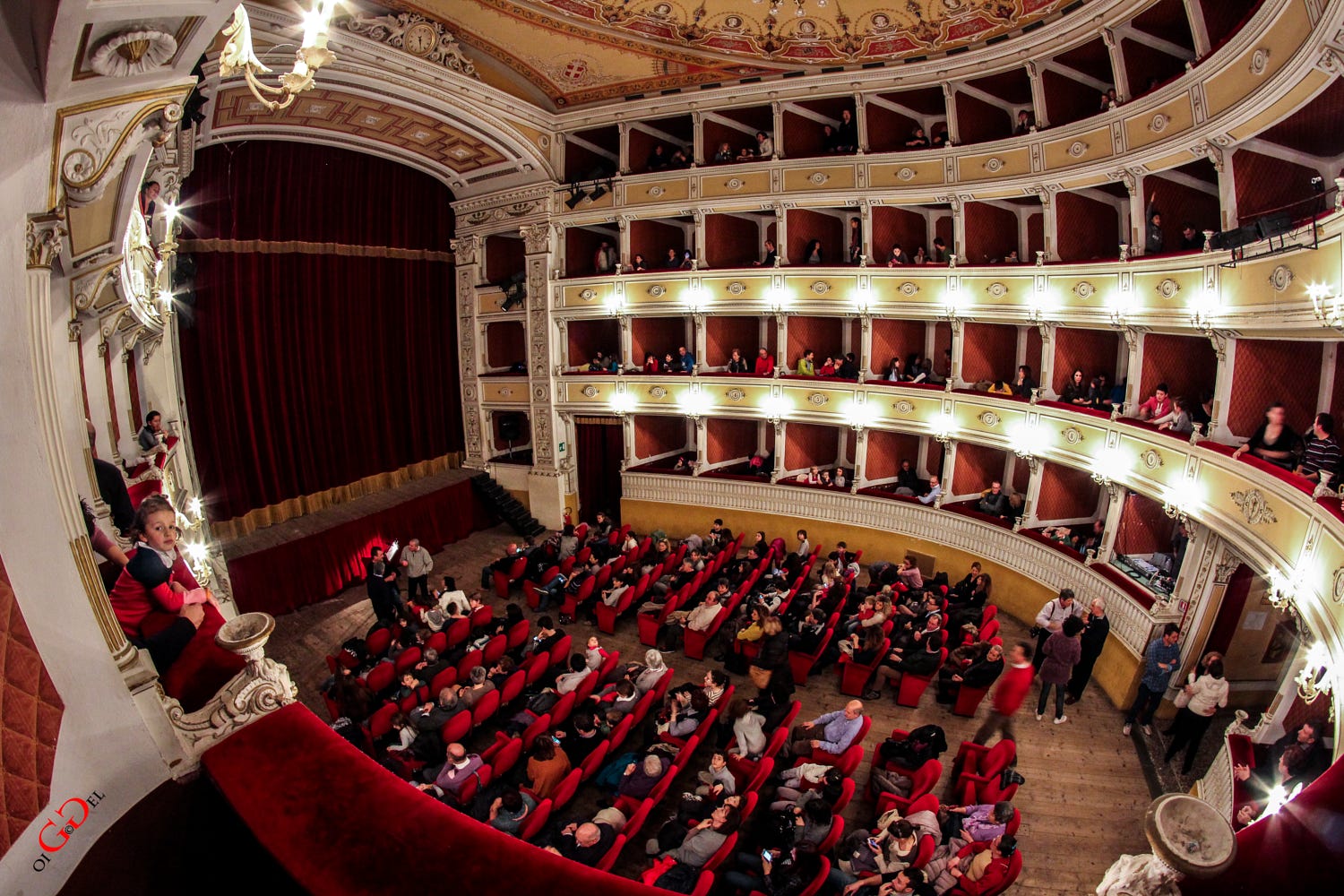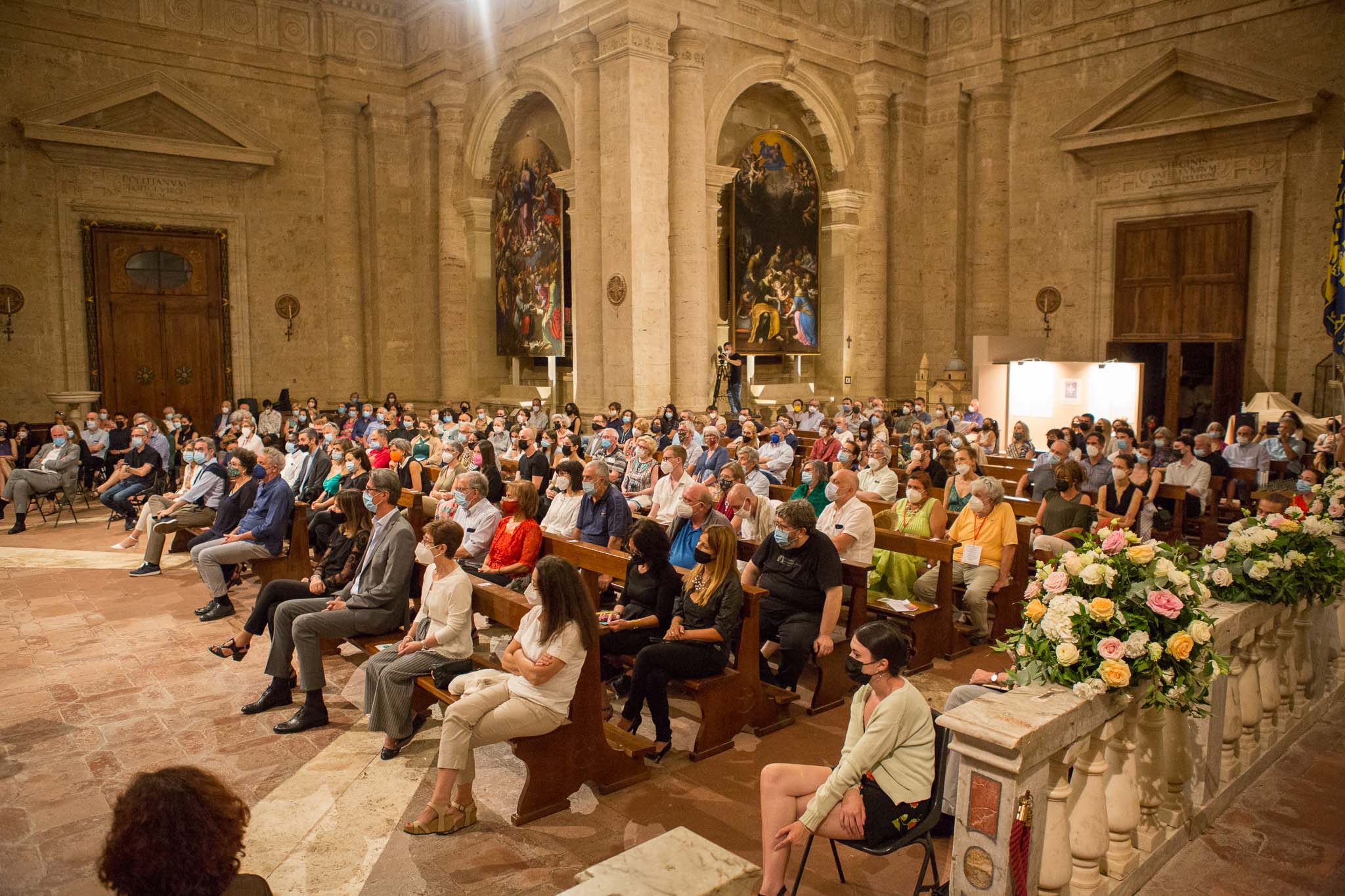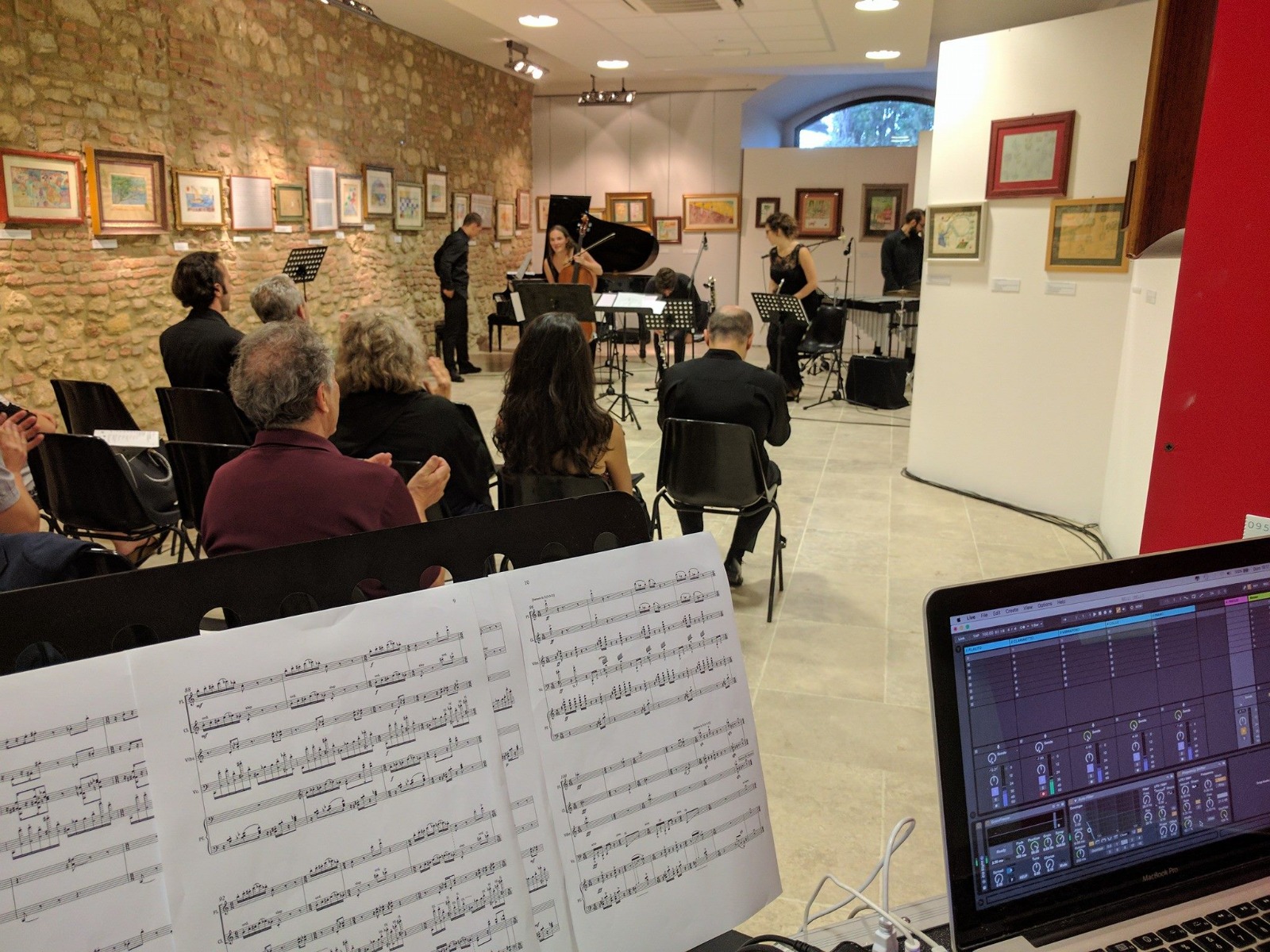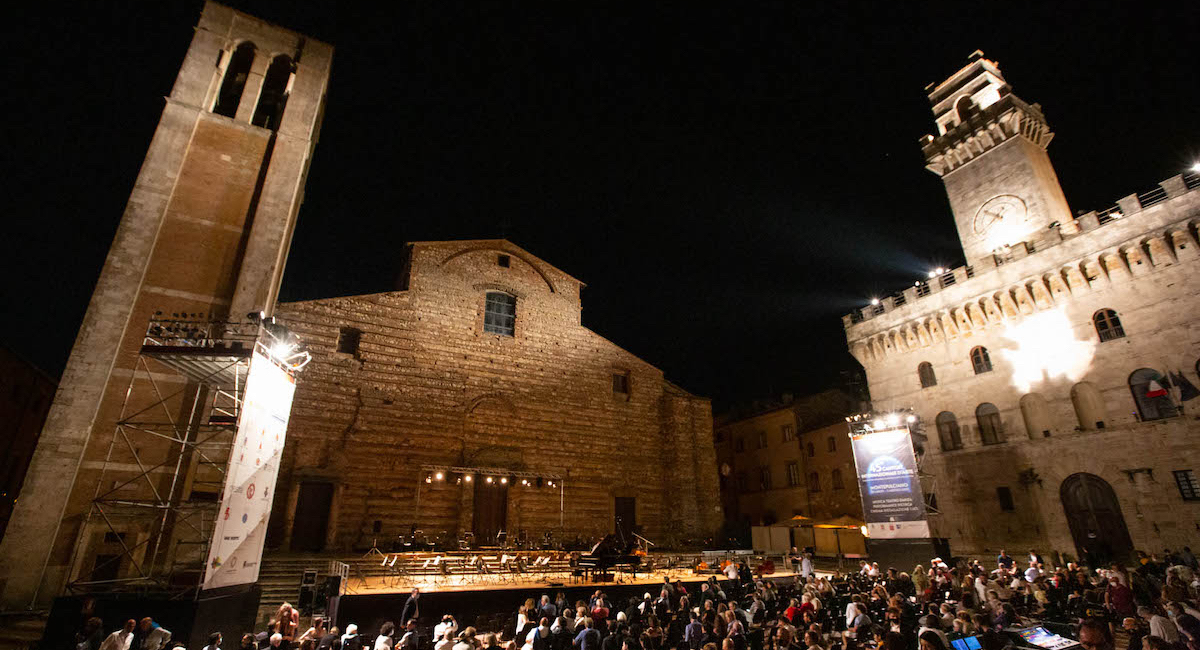PIERROT LUNAIRE
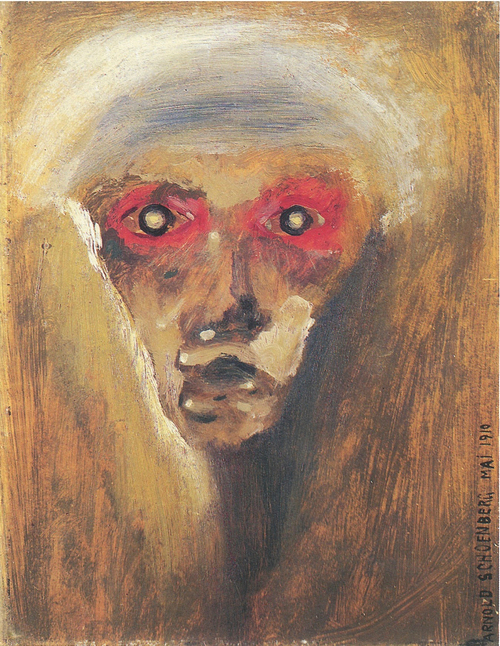
Ventuno poesie in tre parti
per voce recitante e strumenti
di Arnold Schönberg
Valeria Sara Costantin
regia
Michele Gamba
direttore
MONTEPULCIANO - Cortile delle Carceri
MARTEDÌ 16 LUGLIO
Ore 21:30
INGRESSO € 15
ACQUISTA IL BIGLIETTO
Per tutti i biglietti acquistati in prevendita, la maggiorazione prevista è di 1,50 euro.
PIERROT LUNAIRE OP.21
Ventuno poesie in tre parti per voce recitante e strumenti
musica di Arnold Schönberg (1874 - 1951)
testi di Albert Giraud tradotti in tedesco da Otto Erich Hartleben
Michele Gamba
direttore
Valeria Sara Costantin
regia
Alda Caiello
soprano, voce recitante
Alice Morosi
flauto
Raffaella Palumbo
clarinetto
Lorenzo Brufatto
violino
Sayako Obori
viola
Fernando Caida Greco
violoncello
Ciro Longobardi
pianoforte
Mimma Campanale
assistente del direttore
Gianni "Giaccio" Trabalzini
luci e scene
Mara Pieri
costumi
Teresa Zazzaretta
maestro alle luci
Parte I:
Mondestrunken (Ebbro di luna)
Colombine (Colombina)
Der Dandy (Il Dandy)
Eine blasse Wäscherin (Una pallida lavandaia)
Valse de Chopin (Valzer di Chopin)
Madonna (Madonna)
Der kranke Mond (La luna malata)
Parte II:
Nacht (Notte) - Passacaglia
Gebet an Pierrot (Invocazione a Pierrot)
Raub (Rapina)
Rote Messe (Rosso convivio)
Galgenlied (Ballata della forca)
Enthauptung (Decapitazione)
Die Kreuze (Le croci)
Parte III:
Heimweh (Nostalgia)
Gemeinheit (Perfidia)
Parodie (Parodia)
Der Mondfleck (La macchia lunare)
Serenade (Serenata)
Heimfahrt (Viaggio verso casa) - Barcarola
O alter Duft (Antica fragranza)
Epilogo
Walzer
dai Cinque Pezzi per pianoforte, op. 23
NOTE DI REGIA
“Questo è anche il momento di parlare dei miracolosi contributi del subcosciente. Sono convinto che nelle opere dei grandi maestri si possano scoprire molti miracoli, l'estrema profondità e la profetica preveggenza dei quali sembrano sovrumane”.
A. Schönberg, My evolution in “The Musical Quarterly”, ottobre 1952.
1912.
Op.21.
Tre volte sette poesie dal "Pierrot lunaire" di Albert Giraud (versione tedesca di Otto Erich Hartleben). Per una voce recitante, pianoforte, flauto (anche ottavino), clarinetto (anche clarinetto basso), violino (anche viola) e violoncello (melologhi).
Con questi 21 lieder Schönberg giunge ad un bivio: fatalità (?), un percorso di 21 opere lo ha traghettato dall'antico al nuovo mondo. Il vecchio ordine è stato rotto, le regole tonali superate, le leggi inviolabili che hanno governato la musica per quasi quattro secoli messe in discussione.
E ora, quale futuro?
Se i vecchi rapporti che regolavano la musica non sono più in grado di interpretare il presente, può farlo l'assenza di qualsiasi principio compositivo? Davvero “Oggi è permesso scrivere di tutto”? Può la libertà essere totale? Se il sistema tonale è solo uno dei possibili linguaggi musicali, quali regole possono determinarne altri?
Gli otto anni che seguiranno Pierrot Lunaire saranno per Schönberg anni di silenzio compositivo (se si fa eccezione per i quattro lieder per voce e orchestra che compongono l'opera 22) e di prolifico impegno didattico e teorico, con alle spalle gli stravolgimenti delle prime avanguardie artistiche e in seno il primo conflitto mondiale a sconvolgere quell'ordine apparentemente immutabile che aveva governato il mondo fino ad allora. Nella prima opera che romperà questo silenzio e riavvierà la produzione musicale di Schönberg (Cinque pezzi per pianoforte - op.23) troveremo il primo esempio rigoroso della tecnica dodecafonica, l'inizio di una nuova era, la “musica della ragione ritrovata”. Ecco che con sguardo storicizzato possiamo allora guardare a Pierrot Lunaire come ad un'opera non solo apicale, ma di “profetica preveggenza” che nella sua drammaturgia contiene già i semi di questo percorso. Pierrot, maschera che incarna l'amore impossibile, la tensione verso l'ideale dell'artista incompreso, relegato ad una vita solitaria e volutamente avulsa da una società nei cui valori non riesce più ad identificarsi, diviene per il compositore una sorta di alter ego che si esprime attraverso tutti gli elementi che sono parte dell'opera: la soprano, con la sua voce e il suo corpo, i musicisti con le loro parti e gli strumenti, il direttore e perfino lo spazio. Tutto è Pierrot, maschera e non personaggio e, in quanto maschera, paradigma universale e non personale della crisi che sta vivendo il mondo occidentale (non solo nell'arte). Lo stesso Pierrot, nella narrazione drammaturgica, attraversa tre fasi: nella prima parte lo vediamo ancora legato ad un passato romantico, fedele rappresentante di tutti i topoi della letteratura ottocentesca, così ben aderenti al suo spirito idealista, utopico e riflessivo, per poi accogliere un elemento macabro, carnale, devastante che nella seconda parte lo trasfigurerà, lo trasformerà irrevocabilmente in altro da sé, ma che sarà esso stesso causa del suo desiderio di ritrovare una “normalità” negli ultimi lieder. Tuttavia egli sa, come noi, che nulla può esser più come prima, l'equilibrio è ormai rotto, l'essenza di questa nuova era sono disequilibrio e contraddizioni, che lui stesso abbraccerà con ironia e grottesco compiacimento trovando un nuovo approccio al proprio pensiero e ai propri desideri.
Ugualmente è proprio nelle estreme contraddizioni che si coglie la vera anima di Schönberg uomo e compositore, contraddizioni che pervaderanno tutta la sua esistenza, il suo rapporto con la politica, la religione, la libertà e la musica e che raggiungono piena ricchezza espressiva nel Pierrot Lunaire più che altrove. (Valeria Sara Costantin)
DIRECTOR'S NOTE
“This is also the time to talk about the miraculous contributions of the subconscious. I am convinced that in the works of the great masters one can discover many miracles, extreme depth and prophetic foresight of which seem superhuman."
A. Schönberg, My evolution in “The Musical Quarterly”, October 1952.
1912.
Op.21.
Three times seven poems from "Pierrot Lunaire" by Albert Giraud (German version by Otto Erich Hartleben). For a narrator, piano, flute (also piccolo), clarinet (also bass clarinet), violin (also viola) and cello (melologues).
With these 21 lieder Schönberg reaches a crossroads: fatality (?), a journey of 21 works has ferried him from the ancient to the new world. The old order has been broken, the tonal rules superseded, the inviolable laws that have governed music for almost four centuries questioned.
And now, what future?
If the old relationships that regulated music are no longer able to interpret the present, can the absence of any compositional principle do so? Is it really “Today you are allowed to write about anything”? Can freedom be total? If the tonal system is only one of the possible musical languages, what rules can determine others?
The eight years that follow Pierrot Lunaire will be years of compositional silence for Schönberg (with the exception of the four lieder for voice and orchestra that make up op. 22) and of prolific teaching and theoretical activity, with the upheavals of the first artistic avant-gardes behind him and within the first world war to upset the apparently immutable order that had governed the world until then. In the first work to break this silence and restart Schönberg's musical production (Five pieces for piano - op.23) we find the first rigorous example of the twelve-tone technique, the beginning of a new era, the "music of rediscovered reason". Here, with a backward gaze, we can then look at Pierrot Lunaire as a work that is not only apical but of "prophetic foresight" which already contains the seeds of this path in its dramaturgy. Pierrot, a mask that embodies impossible love, the tension towards the ideal of the misunderstood artist, relegated to a solitary life and deliberately separated from a society whose values he can no longer identify with, becomes a sort of alter ego for the composer which is expressed through all the elements that are part of the work: the soprano, with her voice and her body, the musicians with their parts and instruments, the director and even the space. Everything is Pierrot, mask and non-character and, as a mask, a universal and impersonal paradigm of the crisis that the Western world is experiencing (not only in art). Pierrot himself, in the dramaturgical narration, goes through three phases: in the first part we see him still linked to a romantic past, faithful representative of all the topoi of nineteenth-century literature, adhering so well to his idealistic, utopian and reflective spirit, and then welcoming a macabre, carnal, devastating element which in the second part will transfigure him, will irrevocably transform him into something other than himself but which will itself be the cause of his desire to rediscover a "normality" in the last lieder. However, he knows, like us, that nothing can be as before, the balance is now broken, the essence of this new era is imbalance and contradictions, which he himself will embrace with irony and grotesque satisfaction, finding a new approach to his own thinking. and his own desires. Likewise, it is precisely in the extreme contradictions that the true soul of Schönberg as a man and composer is captured, contradictions that will pervade his entire existence, his relationship with politics, religion, freedom and music and which reach full expressive richness in Pierrot Lunaire more than elsewhere. (Valeria Sara Costantin)
 Sostieni i progetti
Sostieni i progetti Amministrazione Trasparente
Amministrazione Trasparente Contatti
Contatti
